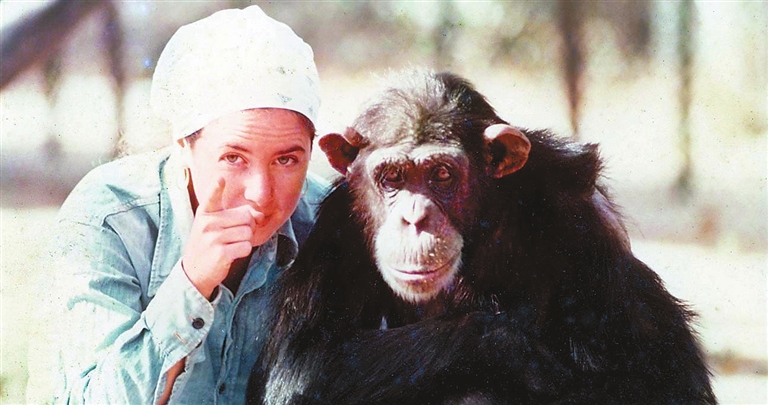
There’s no such thing as a human chimp, but half a century ago a chimpanzee’s conditioning by her human “parents” famously blurred the lines. Lucy Temerlin lived in the suburbs with a psychologist and his wife, went for rides with them in the station wagon, and enjoyed the occasional gin and tonic. After a point, though — that point being puberty — she spent most of her time in a backyard chain-link cage because her size and aggressiveness were wreaking havoc on this nuclear family’s domestic bliss. Going beyond the headlines, filmmaker Alex Parkinson revisits the groundbreaking case through the firsthand recollections of a key participant, one who met Lucy after her days as an experimental subject and followed her well into her troubled retirement. The documentary revolves around two unforgettable figures. First there’s Lucy, born as an intended entertainment attraction in a roadside zoo, snatched from her mother’s arms in the name of science, and ultimately torn from the creature comforts to which she’d become accustomed, and transferred to a natural setting that was utterly foreign to her. The second central character is Janis Carter, arguably Lucy’s best friend. Carter was a grad student in the University of Oklahoma’s Institute for Primate Studies when, in 1976, she took a part-time job working for psychologist Maurice Temerlin and his wife, Jane, as caretaker to Lucy. From the outset this was no ordinary gig. A graduate of the institute’s sign language project, Lucy was 11 at the time, had a vocabulary of 120 words, and had spent all but the first two days of her life living with the Temerlins. But as much as the couple still regarded her as their daughter, she had outgrown the cute-and-cuddly stage and was considered unpredictable and dangerous. Recognizing the bond that developed between Lucy and Carter, the Temerlins invited their employee to participate in the next, difficult chapter of Lucy’s life: placing her in a new home on the other side of the world. A project of the Abuko Nature Reserve, in The Gambia in western Africa, was dedicated to teaching chimps raised in captivity how to live in the wild. The plan was for Carter to stay there with Lucy a few days longer than the Temerlins. But seeing how disoriented, depressed and weak her friend was growing in the new environment, Carter delayed her return to the States. Other chimps at Abuko would be placed in Carter’s care, and though she explains now that she was winging it, her work there was featured on an episode of “Mutual of Omaha’s Wild Kingdom,” a longtime staple of Sunday-night broadcast TV. Parkinson makes strong use of this footage, as he does of material from the personal collections of Carter and Jane Temerlin. More intimate exchanges between his doc’s two central characters are enacted by Lorna Nickson Brown as a wide-eyed and openhearted 25-year-old Carter, and Peter Elliott, in a chimpanzee suit as Lucy — an approach that works thanks to careful framing and strategic blurring. Through her fidelity to Lucy, Carter would find her calling, changing her life in ways that most people wouldn’t dare consider, let alone carry out. She braved dangers, embraced solitude, and found a way of living in a “perfect paradise.” As to what Lucy found, we’ll never know and can only guess. But nobody could come closer than Carter does in shedding light on Lucy’s story, on the real connections she made in the world of human beings, and at what cost. Parkinson’s doc is a heart-wrenching reminder of how little we know — and are willing to acknowledge — about the intelligence and emotional lives of nonhuman earthlings.(SD-Agencies) | 
